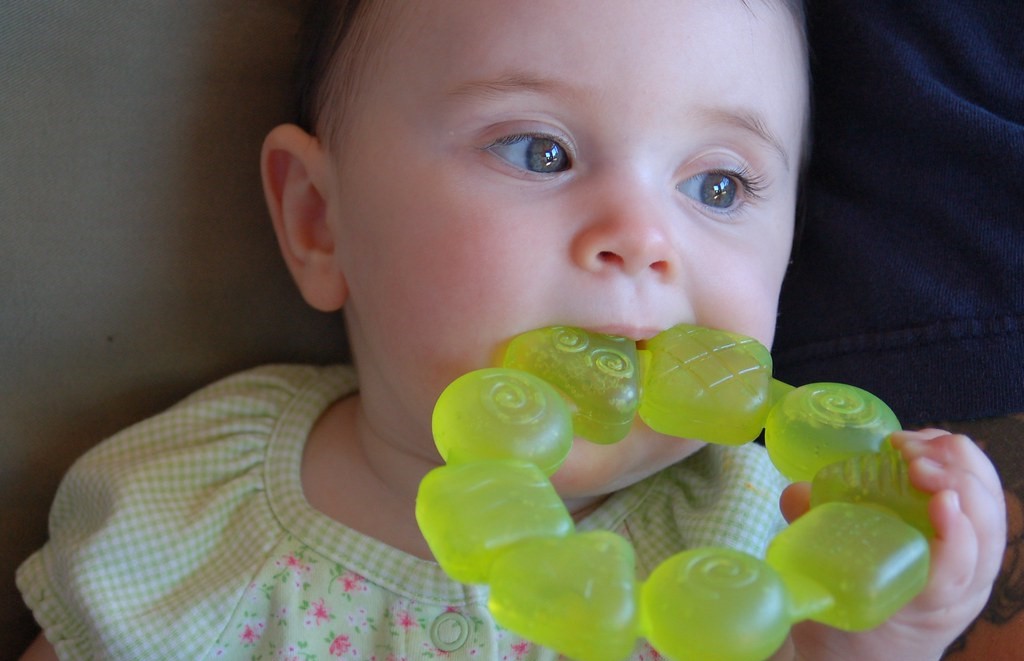Last Updated on September 4, 2024 by Mandy Gurney
A Parent’s Guide to Minimising Nighttime Disruptions
Teething can be hard for both babies and parents. As a parent who has experienced it with both of my babies, I understand how disruptive it can be to sleep. It can feel like a never-ending cycle of discomfort, crying, and sleepless nights. However, there are effective ways to manage it.
In this blog, we’ll explore how teething may affect sleep patterns and offer soothing tips to help minimise disruption.
Your Baby’s First Teeth:
Your baby’s first teeth will appear sometime after the age of four months, although can be later (or earlier). It can be difficult to tell whether the unsettled behaviour you are seeing is due to teething, a minor illness or a new developmental stage.
Teething runs a different course in every baby and toddler. Some children sprout teeth with barely a murmur but most, to varying degrees, find it an uncomfortable and often distressing experience.
How teething pain may impact your baby’s sleep:
- Difficulty Falling Asleep: The discomfort may make it harder for your baby to settle down and fall asleep.
- Waking Frequently: Babies may wake up more often during the night due to the pain and discomfort of teething. This discomfort can cause them to wake from deep sleep, sometimes within the first hour of falling asleep.
- Shortened Naps: Teething pain can also disrupt daytime sleep, leading to shorter naps and a more irritable baby.
- Sudden inconsolable crying, even when picked up.

Tips to Soothe Your Teething Baby:
While teething is an inevitable process, there are several strategies you can use to soothe your baby and improve their sleep:
- Teething Rings: Offer your baby a cold, but not frozen, teething ring. The coolness can help numb the gums and reduce discomfort. Always supervise your baby while using a teething ring to ensure safety.
- Gentle Gum Massage: Gently massaging your baby’s gums with a clean finger or a soft baby toothbrush can provide relief. The pressure from the massage or soft brush can help alleviate some of the discomfort.
- Over-the-counter Pain Relief: If your baby seems particularly uncomfortable, you might consider using an over-the-counter pain reliever, such as infant paracetamol or ibuprofen. If your baby is having night feeds you may find offering pain relief with a feed in the early hours of the morning will help them sleep more soundly during the trickiest part of the night. Always consult with your healthcare provider before administering any medication.
- Maintain a Consistent Bedtime Routine: As much as possible keep to your baby’s regular bedtime routine. A warm bath, quiet story, or gentle rocking can help them relax and signal that it’s time for sleep.
- Keep the Room Cool and Comfortable: Ensure your baby’s sleep environment is conducive to rest. A cool, dark, and quiet room can help them settle more easily, especially when they’re uncomfortable.
- Offer Extra Comfort: During teething, your baby might need a little extra comfort and reassurance. Holding, rocking, or singing to your baby can provide the soothing they need to drift off to sleep.
- Once the episode has subsided: Even though it may not feel like it, teething is a temporary phase. As soon as the pain subsides try to gradually reduce the extra comfort you’ve given your baby to keep them comfortable. Return to your usual bedtime routine and encourage them to fall asleep independently again.
It’s also important to remember that while teething can disturb sleep, other factors such as growth spurts, developmental milestones, or illness can also contribute to sleep disturbances.
If you find that sleep disruptions continue beyond the teething period or if you’re struggling with your little one’s sleep, don’t hesitate to reach out to us for personalised guidance. We’re here to help you and your baby achieve better sleep, even through the ups and downs of teething.
0 Comments





